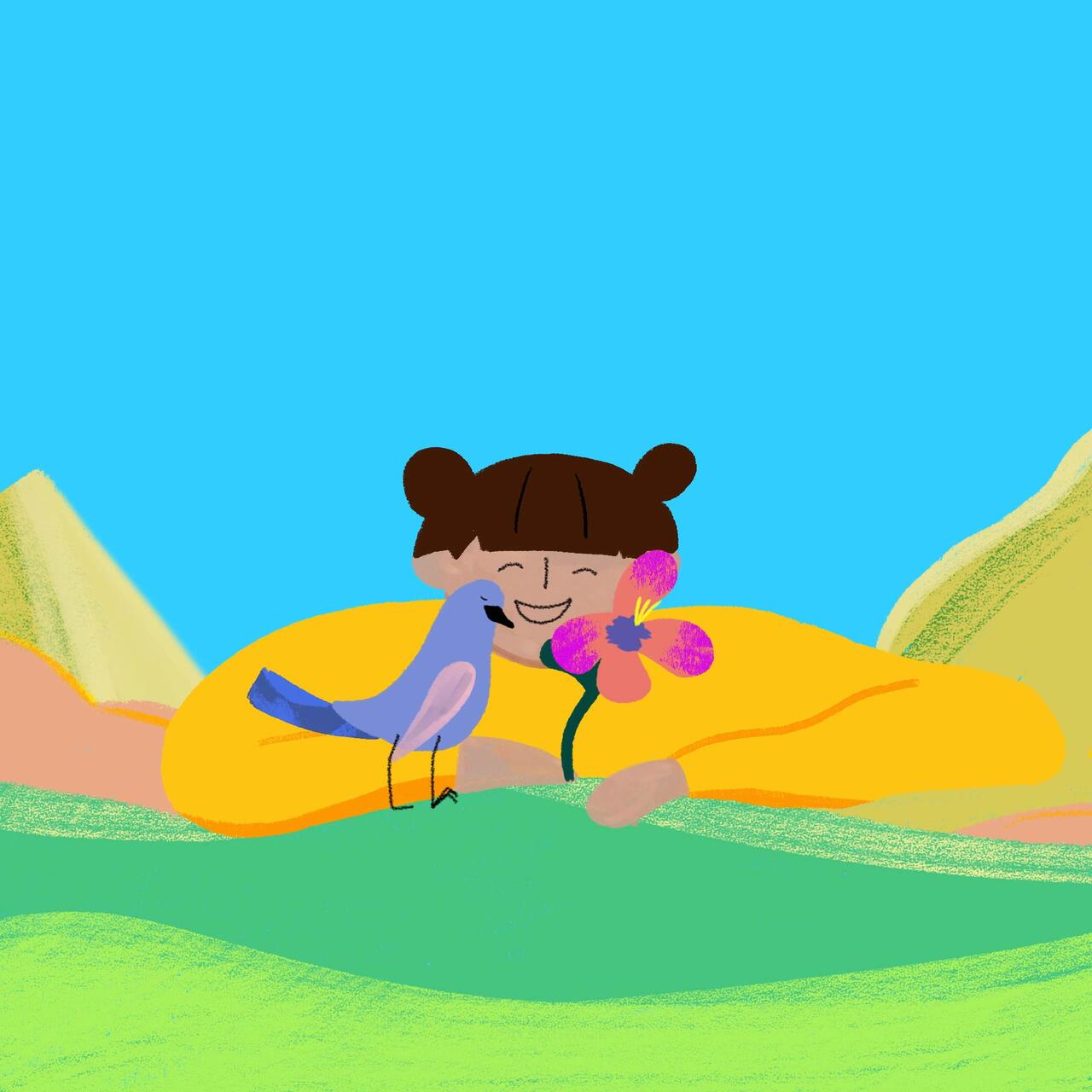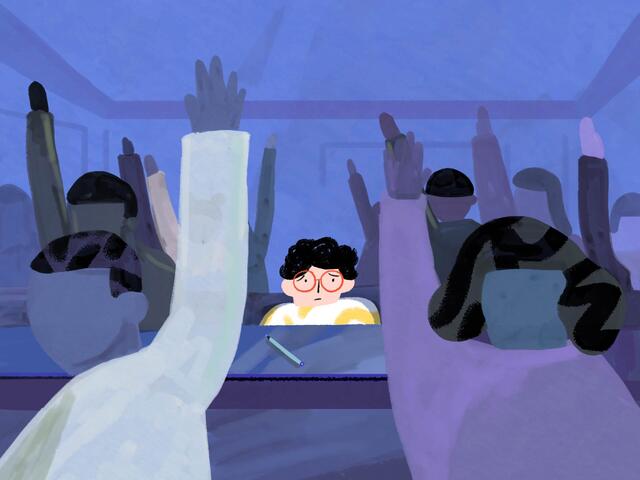
How teachers in the UK are making school a safe place for refugee children to heal
Training teachers and support staff how to offer refugee and asylum-seeking children a safe place to learn and thrive after experiencing conflict and displacement.

Training teachers and support staff how to offer refugee and asylum-seeking children a safe place to learn and thrive after experiencing conflict and displacement.
For children who have experienced conflict and crisis, starting school in a new place with different languages and cultures is daunting. But when refugee children are provided with the right support, school can be a safe place to heal from the trauma and hardship they may have faced after being forced to flee home.
The IRC’s Healing Classrooms programme in the UK trains teachers and support staff across England on how to offer refugee and asylum-seeking children a safe place to learn and thrive after experiencing conflict and displacement.
Suzanne Fisher is based in Brighton and Hove, Sussex and has worked with many children who have experienced trauma. “The biggest challenges initially are language barriers for families and children,” she explains. “I imagine it’s really frustrating not to be able to show necessarily what you're capable of, what you bring, who you are, what your interests are and your family. Other children can talk about those things because they have English, but [refugee children] can't do that.”

Suzanne completed the IRC’s Healing Classrooms training last year. Over recent years she’s been working more closely with refugee children, specifically those who have arrived from Syria and Afghanistan as a language specialist.
I think the Healing Classrooms course is really important because it reminds us of our humanness. It reminds us to connect on a human level and that there are things that we can do that support children and families. They're not always the big actions. Nonetheless, they have big results.”
Children who experience the difficulties of conflict and crisis can have a physiological response called ‘toxic stress’. This has an effect on a child's brain development and can impact their physical and mental health as well as their behaviour and relationships.
The Healing Classrooms explains how you can counter ‘toxic stress’ with supportive atmospheres and environments and with good relationships with adults and children around them. “For many refugee children, so much in their life has been out of control,” explains Suzanne. “So for those children to…have a choice or have some sense of being able to make decisions themselves, that's really empowering.”

“I think that in most schools, teachers really care. And they really want to do the best for their students, but they're incredibly overwhelmed,” explains Suzanne. “The resources that are sent by the IRC are really amazing,” Suzanne tells us. “There are loads of games and ideas. I think that's what teachers need and where it is so beneficial.”
Suzanne specialises in arts and encourages the children she works with to express themselves artistically.

“This one boy really loved to do a lot of artwork,” Suzanne reflects on one of her students. “He was particularly traumatised and was working with his bilingual assistant to write a story about leaving Syria,” Suzanne explains. “They wrote that he'd seen lots of dead birds. Actually, it wasn't dead birds that he'd seen.” The bilingual assistant encouraged the boy to replace his memory of what he’d actually seen whilst fleeing Syria. “She said to him, really gently and thoughtfully, we have to be careful what we say because the children haven't seen these things. And he just said, ‘but I'm a child, and I’ve seen it.’”
Today, the boy is at secondary school, “he's doing amazingly,” Suzanne smiles, “one of his aims was to be an engineer and go back to Syria and rebuild.”
To learn and understand the effect that being displaced or coming from a war-affected country can have on a child, and then knowing that there are real things that you can do and put in place in your classroom to help heal, is what most teachers would really want.”
“[The course] talked a lot about building the children's self-esteem within the classroom, highlighting them as people that come with many qualities,” says Suzanne. “They're not in a deficit, they come with lots of experiences that are really brilliant to bring into the classroom.”

The IRC’s Healing Classrooms instructors have experience teaching in the UK and working abroad in refugee camps. The instructors can connect with teachers and support staff by understanding their challenges as well as providing the IRC’s recommendations.
The programme focuses on three key sections: Preparing a safe space to land, building a community for learning and fostering academic success. Educator Coordinator for the IRC, Josh Corlett, explains: “By breaking it down into three clear steps, we aim to provide schools with a logical pathway to ensure refugee and asylum-seeking children can develop the necessary social, emotional and academic skills to reach their full potential. Within each session, we provide practical strategies and resources alongside insight from colleagues from countries affected by conflict.”

The IRC believes that all children, regardless of their backgrounds, can benefit from the Healing Classrooms programme. “If you implement these strategies in your classroom, everybody will benefit,” says Suzanne, “ it [IRC’s Healing Classrooms programme] should be an absolute priority, particularly where [teachers] don't have any additional support coming into schools. I really think it is so vital.”
The IRC’s Healing Classrooms programme was launched in the UK in May 2022. Since then, we have worked with over 400 educators in over 200 schools across the country. We offer free training for teachers and support staff that focuses on how to provide a safe and supportive learning environment for refugee children.
The Healing Classrooms are a long-running IRC programme adapted for the UK context. Based on 40 years of education in emergencies experience and a decade of research and field testing, the Healing Classrooms programme offers children a safe and predictable place to learn and cope with the consequences of conflict and displacement.
When provided with the right support, the negative effects of hardship and stress are mitigated and children can heal, grow and thrive as they learn.